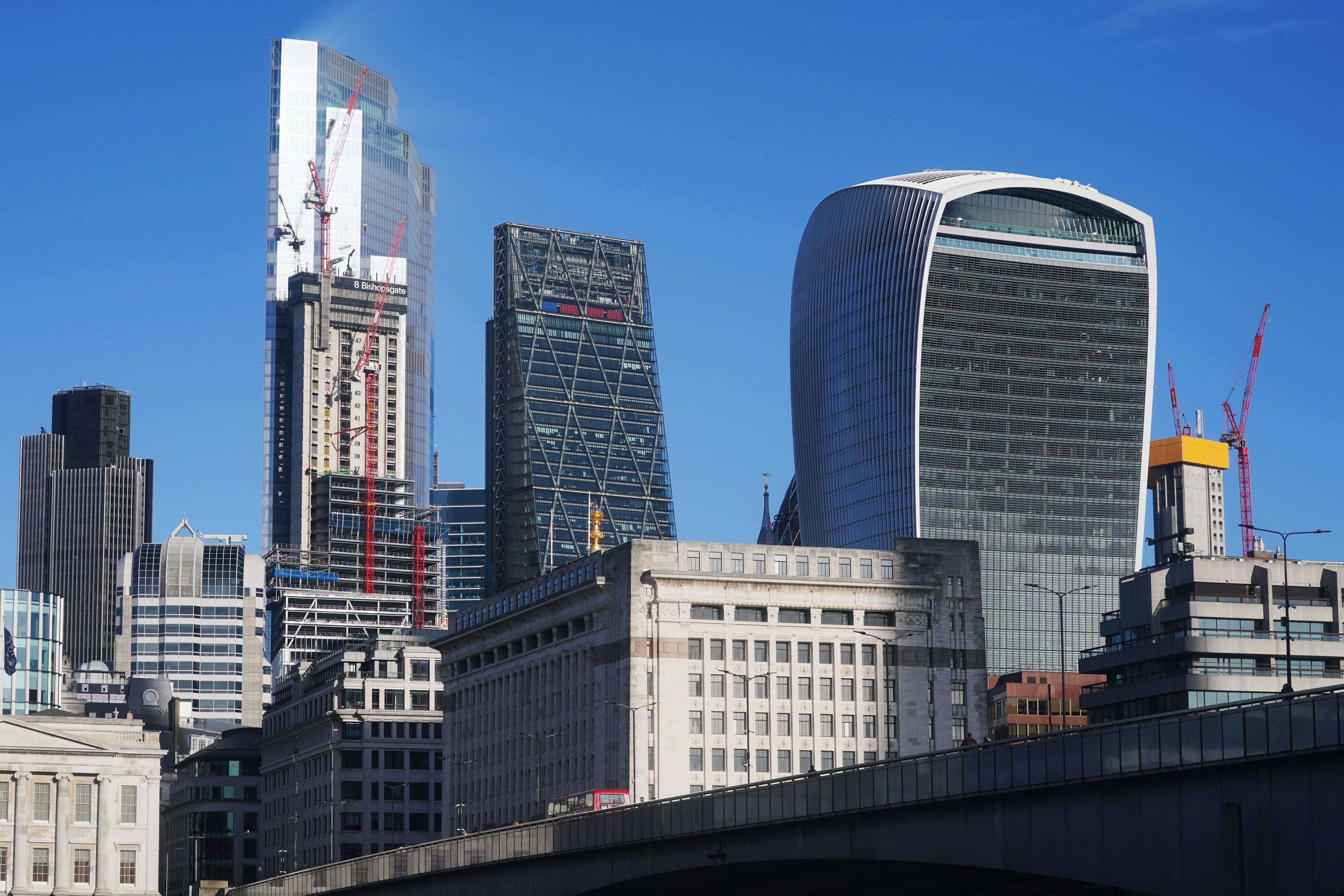Hays sees workers command pay rises of up to 25% in booming jobs market
The recruiter said there is still a shortage of skills worldwide as firms embark on a hiring spree.

Your support helps us to tell the story
From reproductive rights to climate change to Big Tech, The Independent is on the ground when the story is developing. Whether it's investigating the financials of Elon Musk's pro-Trump PAC or producing our latest documentary, 'The A Word', which shines a light on the American women fighting for reproductive rights, we know how important it is to parse out the facts from the messaging.
At such a critical moment in US history, we need reporters on the ground. Your donation allows us to keep sending journalists to speak to both sides of the story.
The Independent is trusted by Americans across the entire political spectrum. And unlike many other quality news outlets, we choose not to lock Americans out of our reporting and analysis with paywalls. We believe quality journalism should be available to everyone, paid for by those who can afford it.
Your support makes all the difference.One of the top bosses at recruiter Hays has revealed workers in some roles are securing pay rises of up to 25% in the strongest market for jobs and wage growth during his tenure.
Paul Venables, the group’s finance director, told the PA news agency that employees switching jobs for promotion are getting pay rises of close to 20%, with those in highly sought after technology roles able to boost their wages by a quarter.
He said there is a shortage of skills worldwide as firms embark on a hiring spree across economies emerging from the pandemic.
It's the highest permanent recruitment market in my 16 years with Hays and the highest wage inflation I've seen
Technology specialists are among the most in demand due to a push for digital transformations across corporates worldwide, according to Hays.
Mr Venables said it was “absolutely the strongest” market he has seen during his time at the group and likely for decades.
“It’s the highest permanent recruitment market in my 16 years with Hays and the highest wage inflation I’ve seen,” he said.
Hays hailed a record performance at the start of 2022 due to the hot jobs market, but revealed a hit of around £5 million after pulling out of Russia.
The group posted a 32% surge in like-for-like fees over its third quarter to the end of March, with record-breaking results across 19 countries and its highest ever monthly fees in March.
Fees in the UK and Ireland rose 29%, it added.
Hays said the closure early last month of its offices in Russia due to the invasion of Ukraine will result in about £5 million in one-off costs.
The sites in Moscow and St Petersburg – which employed 245 staff – accounted in half-year results for around £5.9 million in group fees and about 1% or £800,000 of company earnings.
Full-year guidance remains for full-year operating profits of £210 million to £215 million, excluding the Russia hit.
Alistair Cox, chief executive of Hays, said: “While we are mindful of increased macroeconomic and geopolitical uncertainties, client and candidate confidence remains strong, with continued skill shortages and rising wage inflation globally.”
The group said it had boosted its consultancy workforce by 4% since the end of last year – up 27% year-on-year – and expects to add up to another 3% in its final quarter as it beefs up operations to match a buoyant jobs market.
Official figures earlier this week confirmed the jobs market in the UK remains solid, with the rate of unemployment falling further below pre-pandemic levels, to 3.8% – the lowest since December 2019.
But there were signs of easing demand for staff, with the smallest monthly increase in UK payrolled workers since February last year, with vacancy growth also slowing.
Mr Venables said in the white collar sector, he was “not seeing any signs of things cooling off” yet.
Hays said the UK and Ireland region – which accounts for 22% of group net fees – saw third-quarter performance led by permanent jobs recruitment up 59% while temporary hiring fees rose 13%.
The North West and the South East had stand-out fee growth of 49% and 41% respectively, while Ireland enjoyed a 61% surge.
London – its largest region – increased by 28%, including London City up 57%.